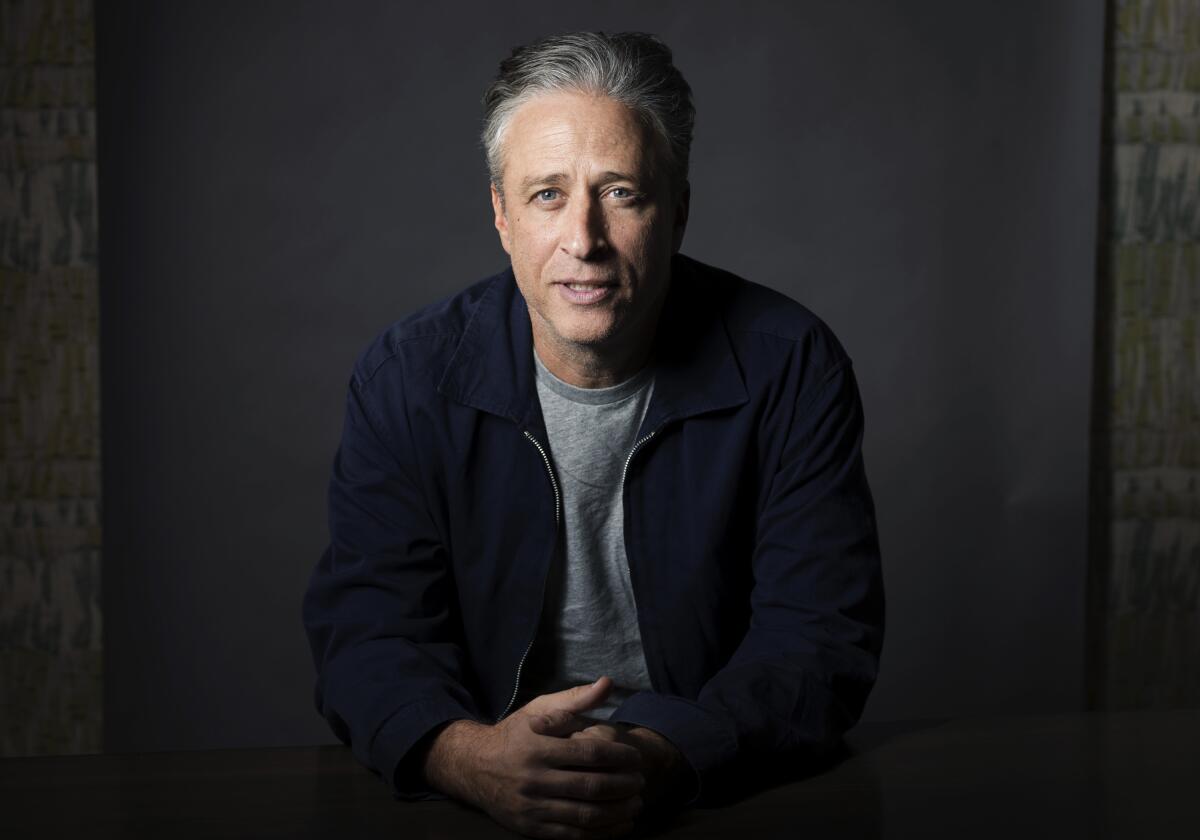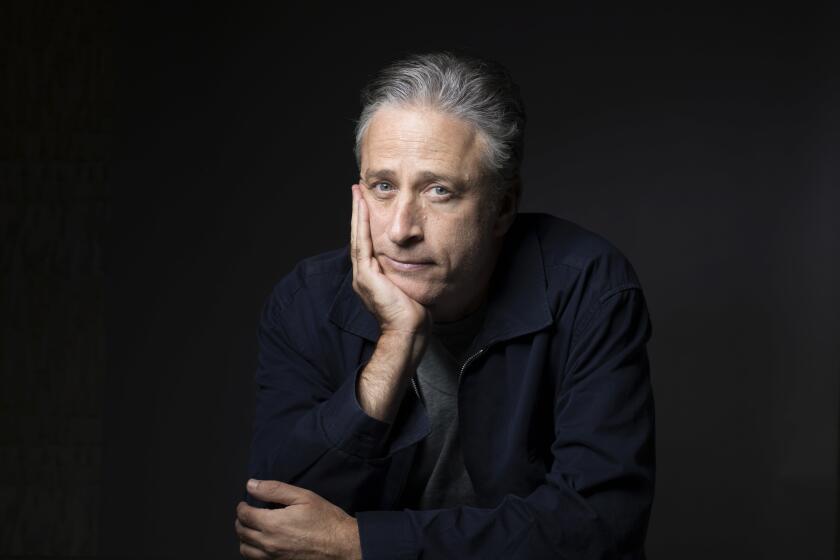Jon Stewart talks to ‘Daily Show’ podcast about returning to host: ‘It’s not just the election’

- Share via
Jon Stewart will make his much anticipated return to “The Daily Show” on Monday night — a weekly hosting gig he will continue through the election in November.
The comedian hasn’t said much publicly about what lured him back to basic cable nearly a decade after he said goodbye to “The Daily Show” in 2015. But ahead of his Comedy Central homecoming, Stewart sat down with “The Daily Show: Ears Edition” podcast to talk about what drew him back to the job and how much has changed in the intervening years, from the transformation of the media landscape and the existential threat of artificial intelligence to the improved quality of the snack offerings at “The Daily Show” offices.
The Times has the full podcast episode exclusively; it will be widely available Monday.
In conversation with writers-executive producers Zhubin Parang and Jen Flanz, who showruns, Stewart says his decision to come back to Comedy Central was motivated by more than just the presidential election and the likely rematch between President Biden and former President Trump.
Jon Stewart, who hosted ‘The Daily Show’ from 1999 to 2015, will return to the desk on Monday nights throughout the 2024 election and will also executive produce the show through 2025.
“If you want to be present in this world, you have to be present in this conversation and you have to be as relentless and as tenacious as the counter-narrative that’s being formed. So much of the information that we see now is weaponized ... and it keeps taking exponential leaps,” says Stewart, who will also serve as executive producer of “The Daily Show” through 2025, and potentially beyond. “It’s not just the election. It’s AI. It’s the way that we’ve militarized all our conflicts. It all ties together to one larger idea, which is the form of government we love so much is an analog — I don’t want to say dinosaur — but it is analog and the world now moves at an increasingly infinite digital pace and reconciling those two things, I think, is the challenge of the moment for people.”
Stewart took over as host of “The Daily Show” from Craig Kilborn in 1999, and transformed the quirky late-night show into a destination for incisive media criticism and political satire. His Apple TV+ show “The Problem With Jon Stewart” premiered in 2021 and was canceled last fall — reportedly amid creative tensions with Apple.
In “Ears Edition,” Stewart tells Flanz and Parang he feels compelled to remain in the conversation in order to combat the effects of artificial intelligence and other bad actors on social media.
“I’m excited to be with you guys again and the best f—ing news team and to just be a part of that conversation because I think you have to register your thoughts and complaints so that it can be referenced,” he says, as a way to counteract AI, which he called “an information-laundering system, a vacuum that takes up all the pieces of human information then spits them out in reconstituted form.”
“If you want the world of the future to be informed by what you think is the right part of the present,” he says. “You have to register, you have to get it out there.”
“The Daily Show” has not had a permanent host since Stewart’s successor, Trevor Noah, signed off in late 2022. The late-night show won an Emmy for talk series last month, clinching a victory in a category that had long been dominated by another series from a “Daily Show” veteran, “Last Week Tonight With John Oliver.” Stewart’s surprise return may help Comedy Central shore up one of its signature programs after a protracted period of transition.
In the podcast episode, Stewart also reflects on the changes to the media landscape since he stepped down as host nearly a decade ago — particularly the way that social media has come to act as an accelerant for conspiracies, disinformation and hate speech.
Compared to when he hosted “The Daily Show,” “It’s a much more dire situation,” he says, “but at least none of these social media entities have monetized that idea and incentivized misinformation because that would truly be truly dangerous. I’m really glad that they fight it so vigorously.”
Clearly, though much has changed in the last decade, Stewart’s sense of irony remains intact.
More to Read
The complete guide to home viewing
Get Screen Gab for everything about the TV shows and streaming movies everyone’s talking about.
You may occasionally receive promotional content from the Los Angeles Times.







